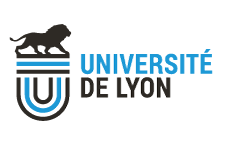Boutique des Sciences > Projects > 2014-2015
Testing an educational model of resilience through art for children with psycho-affective disorders
The Art-Projets association gathers together three Maisons d’Enfants à Caractère Social (“Social Child Shelters”, MECS) of the greater Lyon region (in Albigny-sur-Saône, Vaugneray and Saint-Priest). Welcoming children by court decision, each of these shelters provides its children with daily supervision via a team of specialized teachers. The objective of Art-Projets is to introduce into these shelters an artistic, theatre-based mediation, so as to allow the children to discover a new discipline and, above all, a means for verbal and bodily expression within a flexible and fun framework. The aim is to set up Maisons d’Enfants, Maisons d’Artistes (“Children’s Shelters, Artists’ Houses”, MEMA) – in other words, permanent artist’s residences – within the MECS.

However, the integration of this mediation into the day-to-day routine with the MEMA project remains, over and beyond the associated results, an important variable to be tested, for the question of its daily presence would seem an essential consideration over the long term. Would not the implementation of this tool as a “special event” during transition periods (such as school holidays) contribute to its effectiveness? Indeed, the tool’s daily integration could deprive it of its “special event” qualities, and thereby engender less investment on the part of the children. What’s more, the current mediation setup actually proposes an escape from this day-to-day routine, which according to the teachers can occasionally prove difficult. In addition, limiting the artists' presence to school holidays also allows the children to more serenely approach these periods without school. Not all children have the possibility of returning home to their families during the holidays, and so the mediation can help fill the gaps left by this lack of school and family.
These observations would suggest that this theatrical activity should perhaps undergo a “trial period” prior to its implementation via the pre-established MEMA project, by progressively increasing the presence of artists in such organizations, rather than opting for their immediate integration into the organizations’ day-to-day routines.
CSO
Représentant : Guy VINCENT, porteur du projet MeMa – Maison d’enfants, Maison d’artistes
student
researcher
Nikos KALAMPALIKIS - Psychologie sociale, GREPS (EA 4163) - Université Lumière Lyon 2
Scientific supervisor :
Marie ANAUT –Sciences de l’éducation et Psychologie clinique, Centre de Recherche en Psychologie et Psychopathologie Clinique (CRPPC) et ISPEF, Université Lumière Lyon



 WebAdmin
WebAdmin